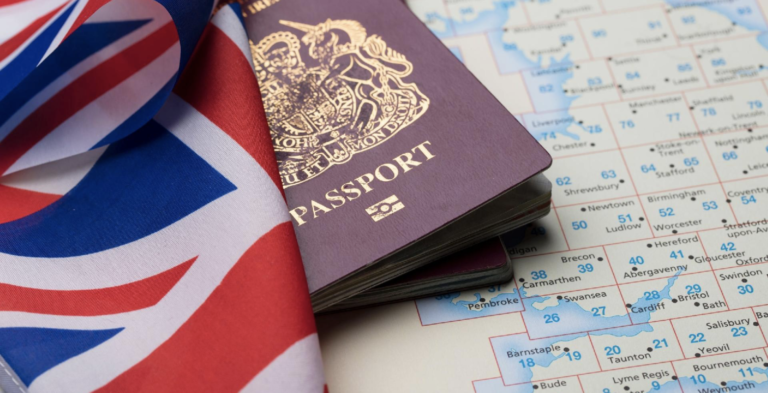Self Sponsorship Visa UK

Self sponsorship is a viable strategy to legally reside in the United Kingdom. The article will cover the concept of self-sponsorship, requirements associated with it, and a step-by-step guide on how to apply.
Is there a Self Sponsorship Visa?
In reality it is not possible to sponsor oneself for a visa. Self Sponsorship actually refers to sponsorship by one’s own business, which is a viable option for getting a Skilled Worker Visa. This visa is most commonly obtained through getting a qualified job in one of the accepted industries or companies, although the option of self sponsoring might be preferable for entrepreneurs.
How to apply for a Self-Sponsorship Skilled Worker Visa?
The process of obtaining a visa through self-sponsorship in the United Kingdom is rather complicated, so it is helpful to split it into four different stages. The steps an applicant has to perform include:
- Setting up a company in the United Kingdom.
- Getting a Sponsorship Licence for the said company.
- Getting a Sponsorship Certificate.
- Applying for a Skilled Worker Visa.
Registering a Company in the UK
Registering a company is the second-longest step in the process and it has a long list of complications and nuances of its own. When establishing a business, it is important to consult professional accountants and seek legal assistance, as the process will affect both the company and the visa.
It is impossible to register a UK company remotely, but it can be completed in one short visit to the country. The main step is to appoint a UK-based director, so in case all the preparations have been made in advance, it is possible to perform it while being in the United Kingdom on a different visa.
Sponsor Licence requirements for Self-Sponsorship
As the name of the process suggests, the applicant will need to sponsor themselves through their freshly registered company. The Home Office, however, does not allow every business to sponsor foreign workers, so it will be necessary to obtain a sponsorship licence for the company.
This is a separate procedure which involves a significant amount of preparation. Securing a sponsor licence in the United Kingdom involves meeting specific requirements set by the Home Office. Your organisation must:
- be a legitimate entity operating in the UK;
- demonstrate a history of compliance with immigration and employment laws;
- have effective human resources systems and practices to manage their sponsored workers;
- designate key personnel within their organisation to manage the sponsorship process and act as points of contact with the Home Office;
- provide financial documentation to prove their ability to support sponsored workers and pay any associated fees and salaries;
employers must categorise the job roles they intend to sponsor and ensure that they meet the skill level and salary requirements set by the Home Office.
Acquiring a Sponsorship Certificate
As soon as the company becomes eligible for sponsoring foreign workers, the visa applicant in question can obtain a sponsorship certificate. This is not done instantly, as it is necessary to order a defined certificate of sponsorship through the Home Office’s system, which normally takes between four and twelve weeks.
Much like the previous stages, this is a fairly complex procedure that requires its own research to be performed flawlessly. The good news is that once such a certificate is issued, the chances of obtaining a Skilled Worker visa become very high.
Getting a Skilled Worker Visa
Applying for the Skilled Worker visa is the last stage of the process. Here are the key requirements for obtaining a Skilled Worker visa:
- a verified job offer from a UK-based employer who possesses a sponsor licence;
- your prospective employer in the UK must provide you with a Certificate of Sponsorship (COS);
- the job position offered to you must align with the requisite level of qualifications;
- you must prove your English language proficiency, for example by passing an approved English language test;
- you may be required to provide a criminal record certificate from your home country;
- if your employer does not cover all your maintenance expenses in the UK for the first month of employment, you will need to
- demonstrate that you possess sufficient funds to support yourself and any dependants accompanying you to the UK;
- residents of specific countries may need to undergo a tuberculosis (TB) test;
- you will need to pay the visa application fee and the Immigration Health Surcharge (IHS).
How much is the Skilled Worker Visa for self sponsored applicants?
The fee for the Skilled Worker visa itself may range from £284 to £1,420, depending on various circumstances such as whether the sponsored job is in a shortage occupation, the duration of the visa, and several other factors. Additionally, it is necessary to pay the Immigration Healthcare Surcharge, which is a fee of £624 per year of the intended visa. It should be noted that this fee is paid in advance for the entire period of planned stay in the United Kingdom, meaning the person applying for five years will be required to pay £3,120 in advance. The Immigration Health Surcharge is set to increase to £1,035 per year of the visa for applications submitted on or after 6 February 2024.
It should be noted that these are only the fees associated with the visa itself. Since this strategy involves registering a company, obtaining a sponsorship licence, and issuing a certificate, applicants should be prepared for additional costs associated with these procedures. Additionally, it is important to keep in mind the fees of accountants and legal advisors, as they are not included in the sponsor licence fee either.
How long does the process take?
Each stage of the process has its own expected duration the applicants should be prepared for. As we have mentioned earlier, launching a company takes from six to eight weeks. Applying for the sponsorship licence takes around a week, although it does not include all the required preparations, as they may vary dramatically depending on the nature of the business. The Certificate of Sponsorship takes somewhere between four and twelve weeks to be issued.
The last stage, which is obtaining the Skilled Worker visa in the United Kingdom, normally takes three weeks for people applying from overseas and around eight weeks for people applying from within the UK. With the latter option, applicants are allowed to stay in the country until the decision is made by the Home Office, meaning that it can sometimes be possible to establish a company while residing in the UK on a different residence visa, pass all the previous stages, and apply for a Skilled Worker visa without leaving the UK.
How long is a Self-Sponsorship Skilled Worker visa valid for?
The self-sponsorship factor does not play a direct role in the duration of the visa. The visa may be issued for a period of up to five years. The main requirement is for the Certificate of Sponsorship to match this duration.
Innovator Founder Visa as an alternative to the Self-Sponsorship route in the UK
Innovator Founder Visa is an alternative to the self-sponsorship route. Much like the route described in this article, the Innovator Founder visa is used by entrepreneurs who wish to launch their company in the United Kingdom. You can read more about the criteria and requirements for obtaining an Innovator Founder is a here.
How can we help?
We at Sterling Law understand the challenges involved in going through the self-sponsorship route. We have already helped dozens of entrepreneurs to enter the country, and we are ready to provide you with the legal assistance you need at every stage of the process. Our lawyers always approach each case individually, taking into account all the circumstances at play and providing our clients with the best advice for their specific situation. Feel free to book a consultation online or visit our office in London to maximise your chances of completing the self-sponsored route successfully.
















